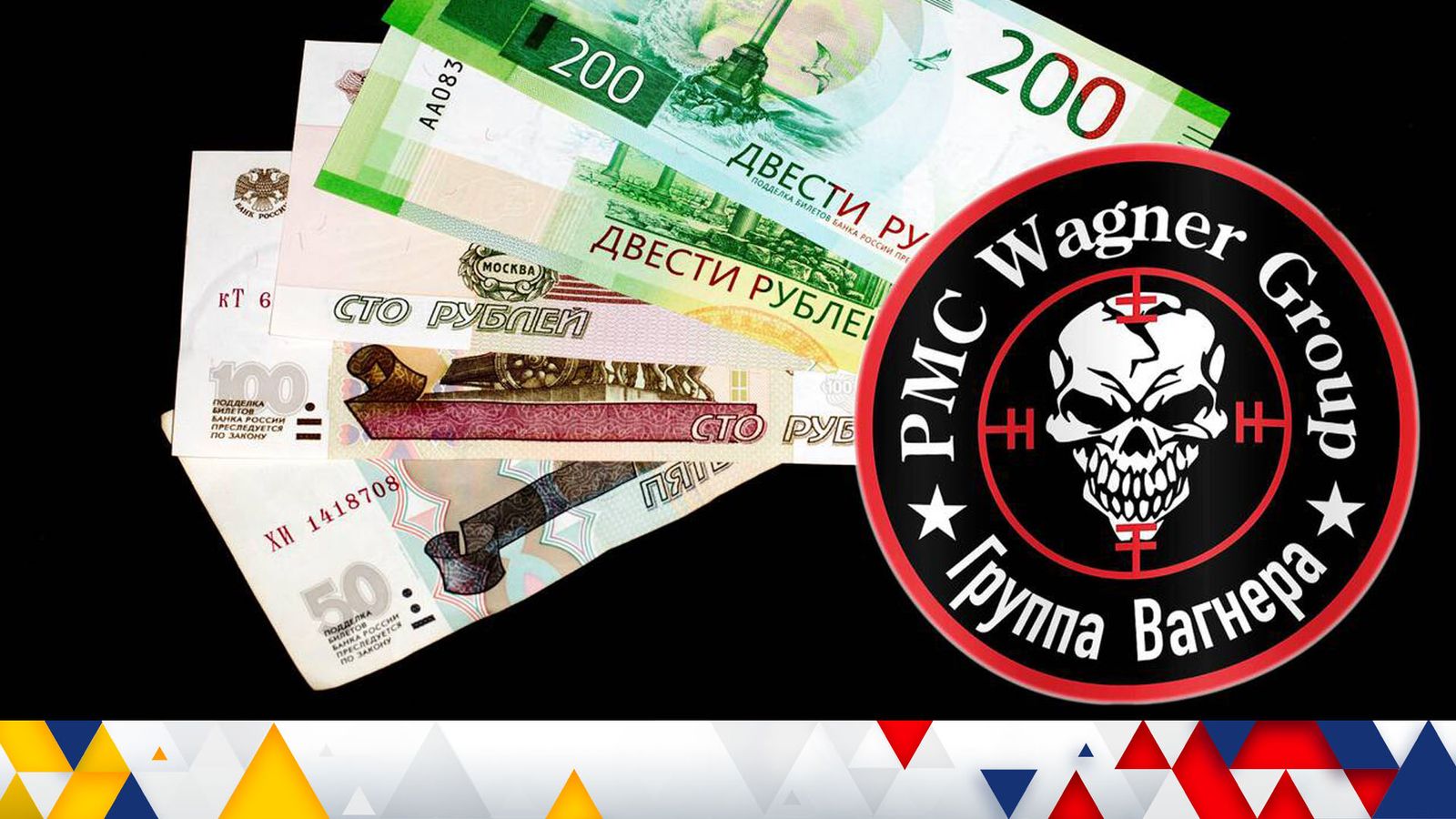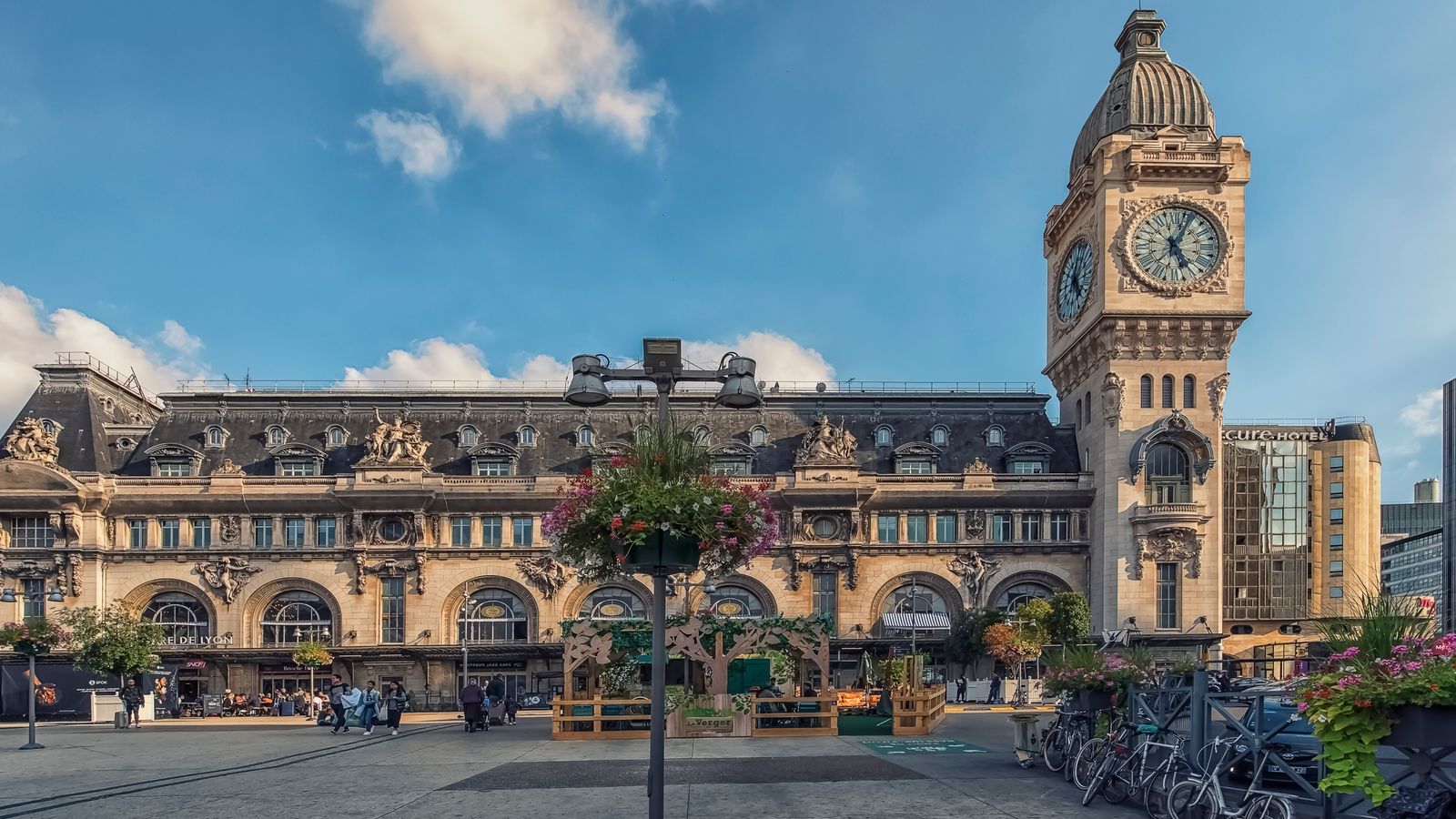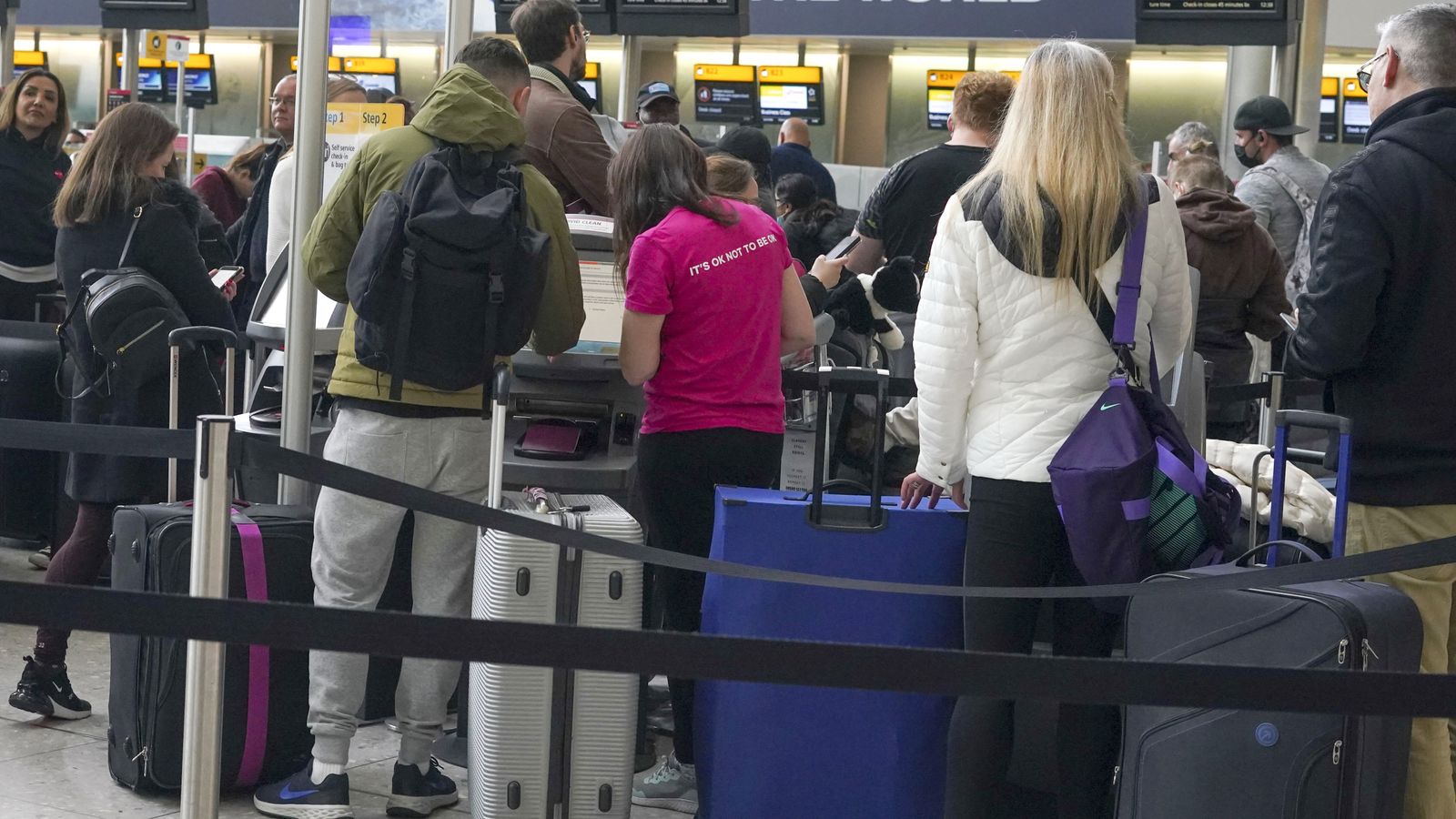Russia is “likely deploying” private mercenaries to help their soldiers in Ukraine, according to the UK’s Ministry of Defence.
The Ukrainian military previously said there had been clashes near Kyiv with members of the private military Liga, formerly known as the Wagner Group.
American officials confirmed that they have seen some indication of Wagner’s involvement in the war.
Sky News looks at what the Wagner Group is and why its contractors are believed to be in Ukraine.
What is the Wagner Group?
The Wagner Group is a Russian mercenary organisation.
Ukraine war: US declines sending Ukraine fighter jets due to ‘high risk’ of Russian escalation with NATO
Ukraine war: Liz Truss to warn West must ‘never again’ allow aggression like Vladimir Putin’s ‘to grow unchecked’
Ukraine war: Family relieved to be in Poland after ‘horrendous’ journey across the border
Sorcha MacLeod, who heads the UN’s working group on the use of mercenaries, told the Economist that from a legal perspective, Wagner does not exist.
It is a network of companies and groups rather than a single entity.
The group is believed to be funded by Yevgeny Prigozhin, a businessman with close links to Vladimir Putin who is also alleged to run Russia’s “troll farm”, the Internet Research Agency.
Mr Prigozhin is one of the many oligarchs recently sanctioned by the West in response to Russia’s invasion of Ukraine.
He has always denied any connection with Wagner.
Read more: What are cluster and vacuum bombs – and do they break international law?
The European Union said Wagner was founded by Dmitry Utkin – a former Russian soldier reportedly adorned with Nazi tattoos.
It is said to have been named after Richard Wagner, Hitler’s favourite composer.
The Wagner Group is privately owned but its management and operations are “deeply intertwined” with the Russian military and intelligence community, according to the Center for Strategic and International Studies (CSIS), an American think tank.
The Russian armed forces reportedly provide the group with munitions and transport aircraft, and the head of Ukraine’s security services has described it as a “private army of Putin”.
The company has at least 6,000 employees and is said to be registered in Argentina, with offices in Saint Petersburg and Hong Kong.
Valery Zakharov, a former member of the Russian state security service, is “a key figure in the Wagner Group’s command structure and keeps close links with the Russian authorities”, according to the EU.
The Russian government denies any involvement with the group and insists it does not legally exist because private military contractors are not legal in Russia.
Please use Chrome browser for a more accessible video player
Why is the Wagner Group in Ukraine?
The Wagner Group is said to be used by the Russian government in conflicts where plausible deniability is called for.
The use of these mercenaries – described as “ghost soldiers” – also allows Russia more secrecy about its military operations abroad and the number of losses.
Some believe that the organisation does not actually exist as a private company but is in reality a hidden branch of the Russian Ministry of Defence that reports to the Russian government.
Private security companies and private military companies are essentially “freelance soldiers” who can be hired cheaply and are more efficient than a regular military force because a small number of them can be deployed for a targeted operation, according to CSIS.
Please use Chrome browser for a more accessible video player
Read more: First Lady Olena Zelenska condemns ‘mass murder of Ukrainian civilians’
What is the Wagner Group doing in Ukraine?
For years Ukraine has accused Wagner of fighting in Luhansk and Donetsk, the disputed parts of eastern Ukraine.
Two days ago the Ukrainian military confirmed there had been clashes near Kyiv with members of the private military company Liga, formerly known as Wagner.
More than 400 mercenaries belonging to the group were sent to Kyiv to assassinate Volodymyr Zelensky, Ukraine’s president, according to a report in The Times.
The Ukrainian government reportedly received information about this early on 26 February, after which it declared a 36-hour “hard” curfew to sweep the capital for “Russian saboteurs”.
Please use Chrome browser for a more accessible video player
By 3 March, Ukrainian president Volodymyr Zelenskyy had survived three assassination attempts – two of them allegedly orchestrated by the Wagner Group, The Times reported.
On 8 March, the Ukrainian military claimed it had killed the first Wagner contractors since the start of the invasion.
Read more: West has ‘serious concern’ Putin could unleash chemical weapons on Kyiv
What has the Wagner Group previously been accused of doing?
Wagner has been accused of war crimes in areas where it has been deployed.
Last year, the EU imposed sanctions on three people and three entities from the group in relation to human rights abuses in the Central African Republic.
“Wagner Group has recruited, trained and sent private military operatives to conflict zones around the world to fuel violence, loot natural resources and intimidate civilians in violation of international law, including international human rights law,” the EU stated.
Subscribe to the Daily podcast on Apple Podcasts, Google Podcasts, Spotify, Spreaker
It accused the group of torture, arbitrary executions and killings, and “destabilising activities” in regions like Donbas in Ukraine.
Wagner was believed to have been active in the 2014 annexation of Crimea, conducting sneak attacks, reconnaissance and intelligence-gathering.
Sky News previously spoke to a group of young Russian men who claimed they were recruited by Wagner and flown on Russian military planes to assist troops loyal to Bashar al Assad in Syria.
Russia had claimed its campaign in Syria was only an aerial operation with a limited number of “instructors and advisers” – but these recruits said this was not the case.
In Sudan, the EU said Wagner mercenaries are thought to have been involved in training as well as the protection of officials and mining sites.
In Mozambique, Wagner has helped the army in its fight against the Islamist militant insurgency in the north.






